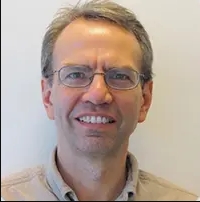Visiting Scholars
Visiting Scholars
| Visitor | Period of stay | Office | Email address | Research interests | |
|---|---|---|---|---|---|
John Carpenter |
1 April 2025 to 3 April 2025 | Dr. John Carpenter joined the ALMA Project in September 2015 as the ALMA Observatory Scientist. John received his PhD from the University of Massachusetts-Amherst, and was a James Clerk Maxwell Fellow at the University of Hawaii and an Postdoctoral Scholar at the California Institute of Technology (Caltech). While at Caltech, John conducted research using the Owens Valley Radio Observatory (OVR... |
 |
Past Visiting Scholars
| Visitor | Period of stay | Research interests | |
|---|---|---|---|
|
Amelia Stutz University of Concepcion |
27 Feb 2017 to 1 Mar 2017 | Star formation, molecular clouds, the formation of stellar clusters, mm/sub-mm/IR observations, kinematics, spectroscopy. |
 |
|
Sun Kwok Laboratory for Space Research, Faculty of Science, The University of Hong Kong |
23 Feb 2017 to 27 Feb 2017 | stellar evolution, interstellar chemistry, space astronomy |
 |
|
Yangwei Zhang(张扬威) Yunnan Observatories, Chinese Academy of Sciences |
21 Feb 2017 to 21 Mar 2017 | dual AGNs and their kinematics |
 |
|
Roland de Putter California Institute of Technology |
20 Feb 2017 to 23 Feb 2017 | inflation, dark energy, dark matter, neutrino physics, the cosmic microwave background, weak gravitational lensing and galaxy clustering. |
 |
|
Lixin Jane Dai University of Maryland |
20 Feb 2017 to 23 Feb 2017 | black hole accretion and jet, TDE, GRMHD simulation |
 |
|
Xuening Bai Institute for Theory and Computation (ITC) at Harvard-Smithsonian Center for Astrophysics |
20 Feb 2017 to 23 Feb 2017 | planet formation, particularly on the dynamics of gas and dust in protoplanetary disks,high-energy astrophysics |
 |
|
Alexey Mints Max Planck institute for Solar System research, Goettingen, Germany |
12 Feb 2017 to 24 Feb 2017 | galactic structure, galactic archaeology |
 |
|
Claudio Ricci Universidad Católica de Chile |
12 Feb 2017 to 15 Mar 2017 | Active Galactic Nuclei |
 |
|
Pau Amaro-Seoane CSIC-IEEC,Spain; TU Berlin |
11 Feb 2017 to 26 Feb 2017 | stellar dynamics, LIGO/Virgo/LISA black holes, data analysis and gravitational-wave search algorithms, planetesimal dynamics, scalar fields and collisional dark matter, and GPU computing |
 |
|
Nicolas Caballero Max planck institute for radio astronomy |
4 Jan 2017 to 24 Jan 2017 | Pulsar, gravitational wave |
 |
